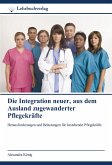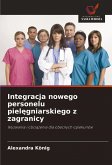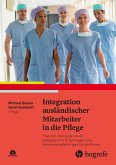The already serious shortage of specialists in healthcare and nursing has become even more dramatic due to the COVID-19 pandemic. This has resulted in beds being closed in acute inpatient and outpatient settings. The care of patients can no longer be guaranteed and the demographic development paints a difficult scenario for the future. Attempts are being made to counteract this with various solutions, one of which is the recruitment of foreign nursing staff. Although sufficiently described in the literature, the perspective of existing nursing staff, who are responsible for the induction and social integration of new nursing staff from abroad, is given little consideration. This study attempts to shed light on the experiences and burdens of existing nursing staff during the integration process in order to draw conclusions for future measures to complement a successful integration concept.
Bitte wählen Sie Ihr Anliegen aus.
Rechnungen
Retourenschein anfordern
Bestellstatus
Storno








